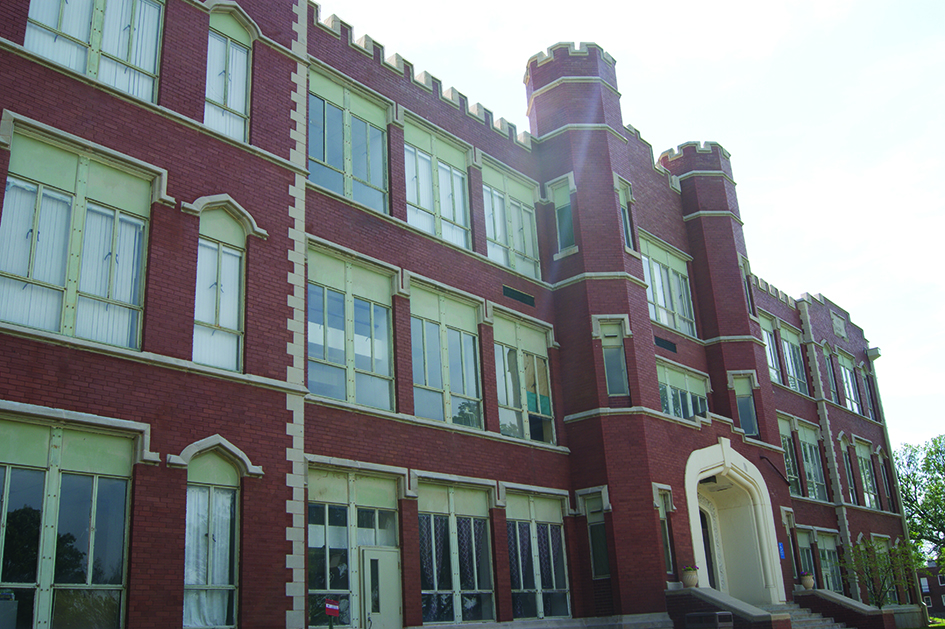By Megan Brown
Staff Reporter
More than 1,000 people walk on Northwestern’s Alva campus every day, but very few actually know what it takes to keep the historical buildings in shape.
Jim Detgen, the director of physical plant, said that the maintenance department faces issues such as being short staffed and keeping up with the growing to-do list.
“Probably the biggest issue is keeping all the equipment up and running with the small crew that we have,” Detgen said.
During the most recent oil boom that took place in the Alva area, the maintenance crew lost some positions. When these maintenance employees left, the positions they held were not filled due to budget cuts. This left a smaller maintenance staff doing the jobs of many.
“It affects everything from cars to the buses to heat and air to water; you name it,” Detgen said. “I have one HVAC person for this whole campus.”
HVAC is the heating, ventilation and air conditioning systems across campus.
While some of the roles are filled by student workers, they are limited as to what jobs they can do. Detgen said they are not allowed to do anything that could possibly injure them. They are often responsible for minor projects such as washing the university vehicles.
Inmates from Bill Johnson Correctional Center are often used to help keep the campus in shape. Detgen said Northwestern pays a minimal fee for the nonviolent inmates along with a guard to come to campus. Usually three or four inmates come to campus at a time, and their services are utilized largely before the fall semester begins.
“Without them this campus would look pretty bad,” Detgen said.
Northwestern hires out for specialized projects, such as the recent tuck-pointing on the Fine Arts Building, in order to ensure that the projects are done correctly.
Maintenance is one of the many areas that fall under Dr. David Pecha, the vice president for administration.
“I’ve got one shot to fix the building so I want to get somebody who does that day in and day out for a living,” Pecha said. “Our maintenance folks are very skilled, but something like trying to do a whole building, I would never expect them to do that.”
Pecha said there is not currently an electrician on staff, but the campus employs a licensed plumber and some journeymen who are able to complete the majority of the jobs.
Like many things, the campus cannot be maintained without proper finances. Northwestern has a budget for all aspects on campus related to maintenance, but maintenance is somewhat of a catch-all phrase, as the budget and upkeep of the buildings fall into many subcategories.
According to the Educational and General Budget for the Academic Year 2018-2019, a total of $2,818,415 was allotted from the budget under the building maintenance category for all three campuses. This money was used for many things ranging from repairs and supplies, grounds, custodial, major repairs and risk management.
Pecha said that funds from the state will never be enough to cover everything, so the university relies on outside donations for a lot of projects. Past donations have been responsible for the baseball field, football complex, including the turf, and the renovations to the Fine Arts building.
While the funding might not be as abundant as they would like, with the help of donations Northwestern is able to keep the campus safe and work on making updates.
“Funds have never been an issue for me in 27 years,” Detgen said. “If we need the money to fix something we almost always get it. There’s been times when they said we had to wait, but that’s never really been an issue.”
When it comes to addressing the maintenance issues on campus, Pecha said the process involves gathering information from different sources in order to prioritize.
Recommendations from maintenance workers, employees in the buildings and the university architect are taken into consideration. From there, the issues are split into cosmetic or structural and then urgent issues are addressed first.
“Emergency things are done right away; it doesn’t matter how many people it takes,” Detgen said. “If we have to call in outside help, we do.”
Along with the day to day building maintenance, some bigger concerns will need to be addressed due to the age of the campus. Some of Pecha’s concerns include the heating and air units, roofs, infrastructure and uneven ground.
“I always want to have a campus that is safe to walk on and is well-lit,” Pecha said. “To me those are two things that we owe to our students and our employees to have a safe campus to come to work at.”
All of these projects, and more, are in Northwestern’s future.
Currently a plan is in place to redo the mall area on campus. This is a part of the “Imagine Northwestern” campaign that is aiming to raise $28 million for renovations and scholarships.
As for those who spend a large part of their time in these historical buildings, they are used to the issues that come with these old buildings.
In some instances, such as the leaking in the Education Building, employees took it upon themselves to help decrease the damage.
“I have to give our staff kudos,” Pecha said. “Not just the issues we’ve had with that roof but I can think of other times when we’ve had inconveniences where we had to relocate offices, relocate classrooms; in most cases, we didn’t ask for it nor did the person who lives in those buildings.”
With the age of these structures, something that starts small often turns into something big.
Detgen said the majority of the issues cannot be prevented and just have to be repaired in the best possible way.
When it comes to handling the downsides to working in old buildings, those at Northwestern have handled it well.
“I think it goes back to that Ranger spirit we have, and we’re one big family,” Pecha said.

